Traveling alone in remote areas is an enriching experience. It can provide you with some of the most extraordinary moments of your life. Yet, it is crucial to be well-informed and well-prepared to ensure your safety. Here are some tips to help you have a pleasant journey.
Plan and Research Thoroughly
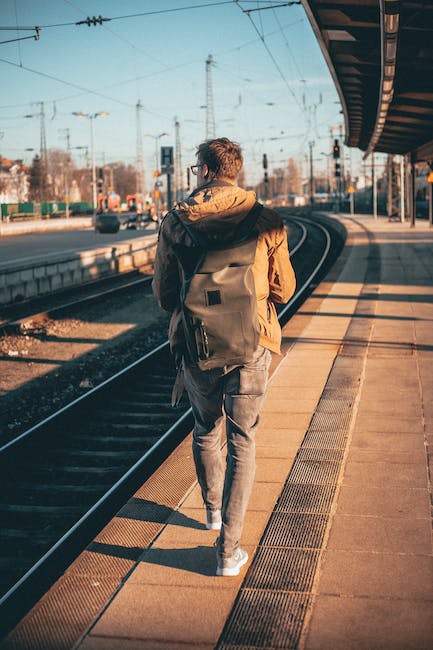
It’s important to plan your journey when traveling alone, and even more critical when traveling to a remote area. To avoid any unwanted surprises, research your destination thoroughly. This will help you to familiarize yourself with local customs, laws, and cultural norms, allowing you to have a culturally sensitive experience. Additionally, it’s important to have a solid understanding of the region’s geography, weather patterns, and potential health risks. Understanding these factors will allow you to pack appropriately and plan your trip, ensuring that you feel safe and well-prepared.
Share Your Itinerary with Someone You Trust

It is essential to share your itinerary with someone you trust. This could be a friend, family member, or coworker who knows your travel plans and has a copy of your passport and other important documents. In the event of an emergency, someone can inform the authorities of your whereabouts or reach out to you in case you miss a check-in time.
Keep Your Valuables Safe and Secure
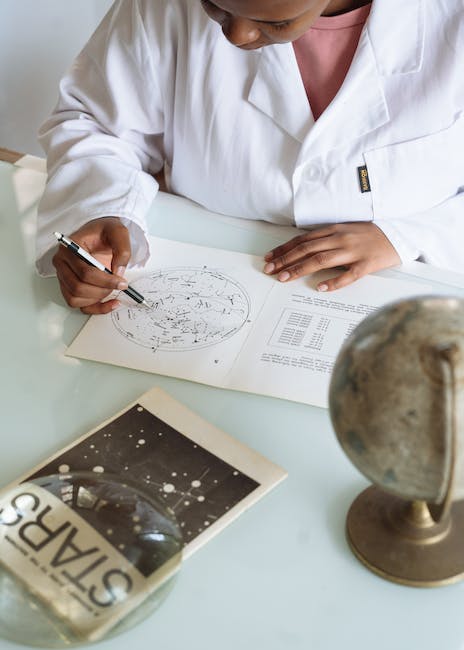
Traveling alone in remote areas means that you are solely responsible for keeping your valuables safe and secure. Bring a money belt, locking backpack or suitcase, and a small combination lock for your accommodations. These will give you the relief that your valuables are well-protected even if your bags are left behind in a hotel or guesthouse. Additionally, it’s always a good idea to carry a copy of your passport and important documents, such as travel insurance information, in a separate location.
Stay Alert and Aware of Your Surroundings

When traveling alone in remote areas, it’s important to stay alert and be aware of your surroundings. Pay attention to any unusual behaviour from locals or other travelers, and be aware of potential dangers such as wildlife or bad weather conditions. Try to avoid walking alone at night, and always carry a mobile phone and emergency contact information with you. Being defensively conscious can not only help you stay safe but also provide others with moments of relief.
Learn Basic Self-Defense Techniques

One way to ensure safety when traveling alone in remote areas is to learn basic self-defense techniques. This is especially true when traveling alone, where you may be more vulnerable. Consider taking a self-defense class before embarking on your journey, or learn some basic moves online. This knowledge could help you protect yourself in case of an emergency.
Be Respectful of Local Customs and Culture
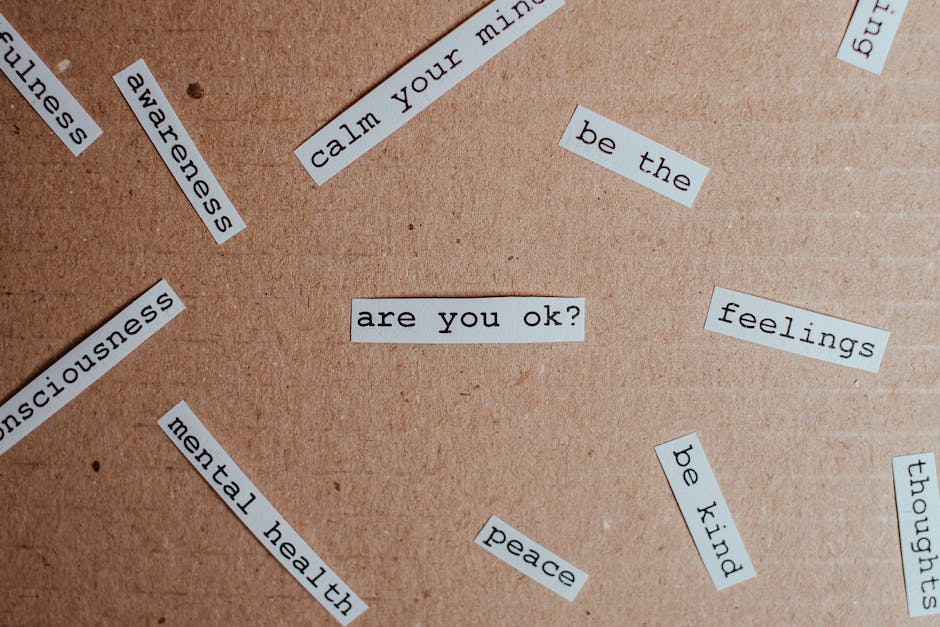
Culture is vital when traveling solo. Understanding and adhering to local customs and culture is crucial. This means dressing appropriately, being mindful of local attitudes to women and LGBT+ individuals, and avoiding any behaviour that may be considered disrespectful or offensive. Being sensitive will promote your safety and build your awareness of different global practices, making the experience even more memorable.
Pack Appropriately for the Environment

When traveling alone in remote areas, it is crucial to research the environment thoroughly and make judgments based on facts. Understanding the climate, weather patterns, and environmental conditions is a vital aspect of any journey. Be sure to pack according to the environment you’ll be in. Don’t forget to bring any necessary medication, bug sprays, or sunscreen. It’s also essential to wear appropriate clothing and footwear, especially if you’ll be hiking or engaging in other outdoor activities.
Be Cautious When Accepting Offers of Help
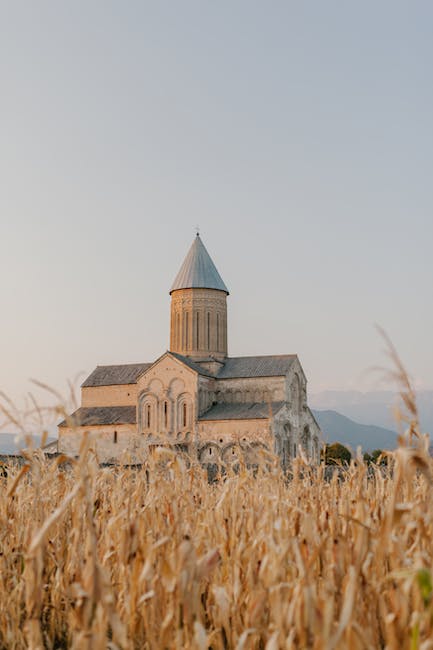
While traveling alone in remote areas, you may encounter locals who offer to help you. While most people have good intentions, it’s crucial to be vigilant when accepting offers of support. Listen to your intuition and trust your instincts. If something seems off or wrong, it’s better to err on the side of caution and decline the offer of assistance. However, if you’re confident in your judgement of an individual, do not hesitate to seek support as well.
Stay Connected with the Outside World

It’s essential to stay connected with the outside world when traveling alone in remote areas. Make sure to bring a mobile phone, charger, and any necessary international SIM cards. Additionally, consider investing in a satellite phone or GPS tracker, especially if you’ll be in areas without reliable cell phone coverage. Being connected to the world will allow for timely communication, hassle-free emergency response, and staying informed about current events.
Know When to Seek Professional Help

Finally, it’s important to know when to seek professional help. If you’re feeling uncomfortable, unsafe, or unsure about your location, don’t hesitate to reach out to local authorities or seek help from the nearest embassy or consulate. Remember, it’s always better to be safe than sorry. Knowing when to seek professional help can prevent any situation from escalating to perilous levels.

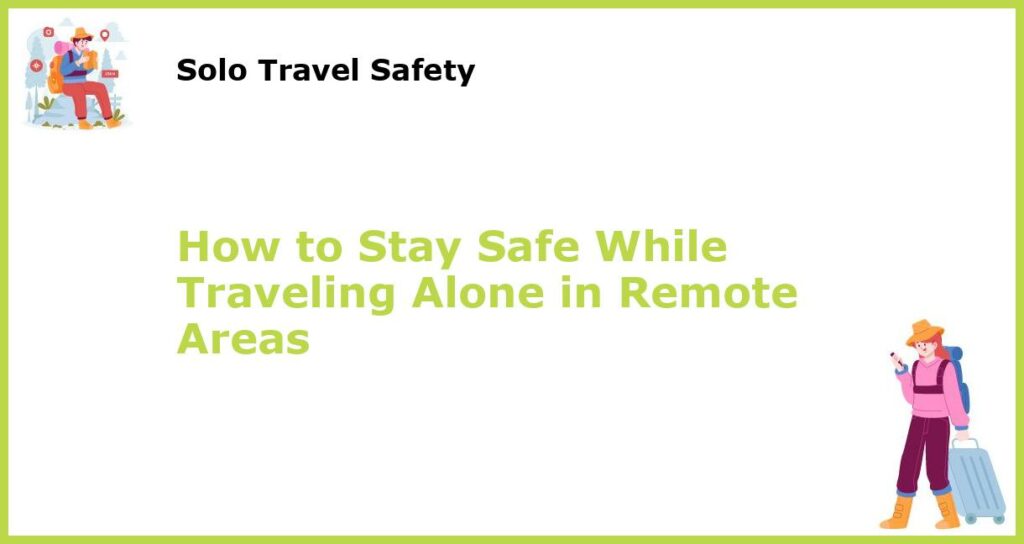






 You might also be interested in those articles related to solo traveling
You might also be interested in those articles related to solo traveling